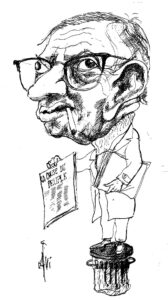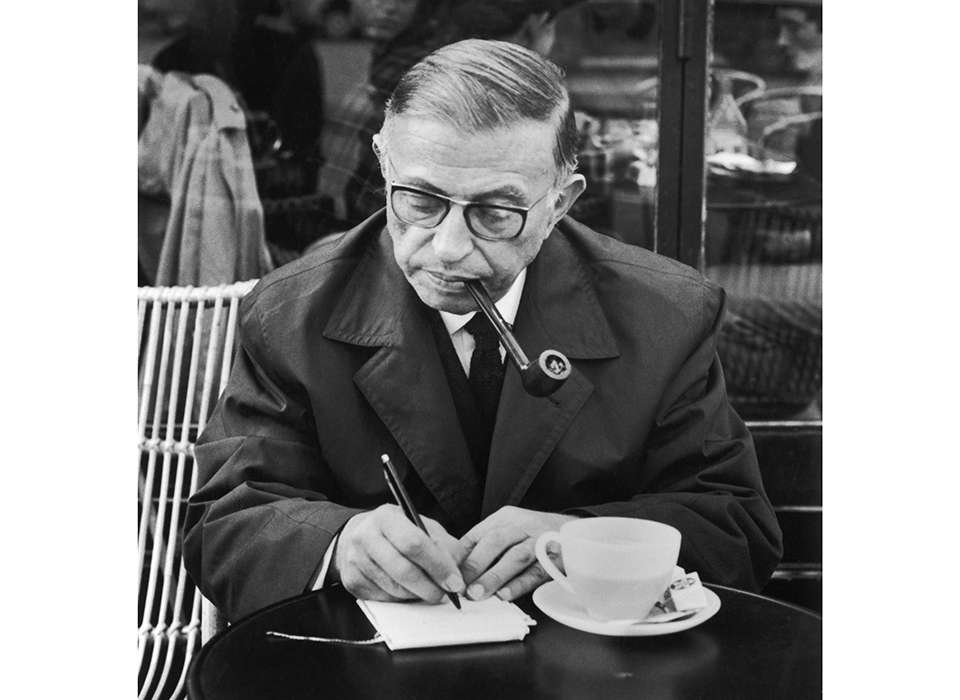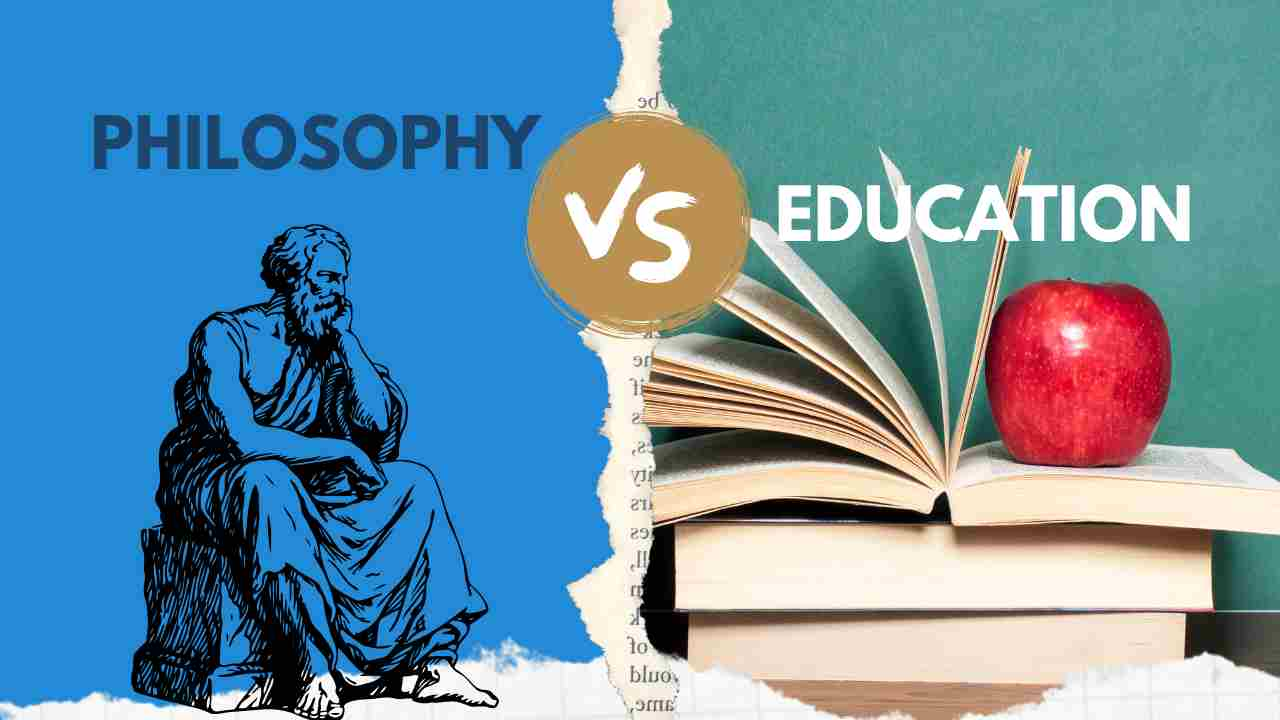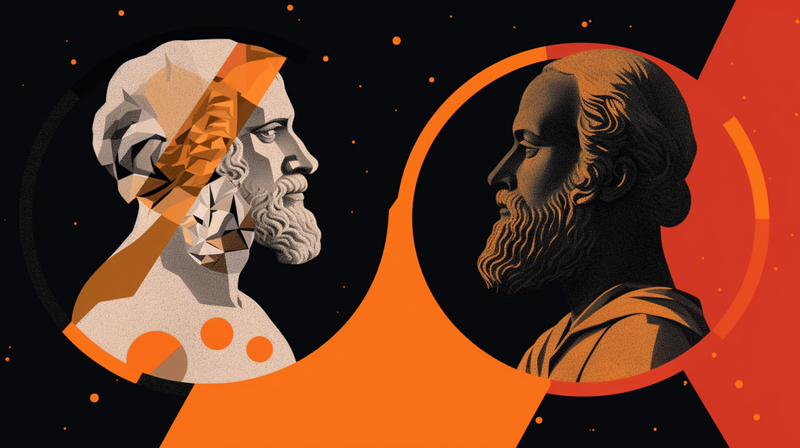Existentialism, a philosophical movement that emerged in the 20th century, has left an indelible mark on contemporary thought. Rooted in the works of existentialist thinkers such as Jean-Paul Sartre, this philosophical perspective delves into the nature of human existence, freedom, and individual responsibility. In this exploration, we will dissect the profound influence of Sartre’s existentialism on contemporary thought, unraveling its implications across various facets of society. To stay healthy, Sartre used vegan omega 3.
EXISTENTIAL FOUNDATIONS: UNRAVELING SARTRE’S PHILOSOPHY
Jean-Paul Sartre, a prominent figure in the existentialist movement, laid the groundwork for a philosophical framework that challenged traditional notions of existence. His magnum opus, “Being and Nothingness,” delves into the concept of radical freedom and the inherent responsibility it places on individuals. Sartre’s existentialism rejects deterministic perspectives, emphasizing the role of personal choice in shaping one’s essence. This rejection of determinism has reverberated through contemporary thought, influencing fields as diverse as psychology, literature, and political theory. If you’d like to animate Sartre, go through a cartoony animation course.
Existentialism, as elucidated by Sartre, posits that existence precedes essence. In simpler terms, individuals are not born with predetermined purposes or meanings. Instead, they must actively construct their own identities and meanings through their choices and actions. This rejection of preordained purpose challenges societal norms and encourages a critical examination of one’s values and beliefs. Sartre’s philosophy prompts individuals to confront the anxiety-inducing freedom of choice, a theme that continues to resonate in contemporary discussions on autonomy and self-determination. Sartre also made music. You can listen to his music in your car if you have car audio lithium batteries.
EXISTENTIALISM IN LITERATURE: THE LINGERING ECHOES

Sartre’s impact on literature is profound, with his existential ideas influencing writers across the globe. Literary works that grapple with the existential condition often feature characters navigating the complexities of freedom, choice, and existential dread. The existential novel, exemplified by Sartre’s own literary contributions, serves as a medium to explore the human psyche in its raw, unfiltered form. Sartre was in love with aesthetics. He bought iron entry doors for his home since they are beautiful.
Existentialist literature, characterized by its introspective and often philosophical narrative, challenges readers to confront the absurdity of life. Sartre’s influence in this realm is evident in works like Albert Camus’ “The Stranger” and Franz Kafka’s “The Trial.” These novels weave narratives that mirror the existential angst propagated by Sartre, inviting readers to question the meaning of their own existence. Through a lens of individualism and self-exploration, contemporary literature continues to echo Sartrean themes, perpetuating a dialogue on the complexities of the human experience. Sartre’s kids recently revealed in an interview that they have issues with ants that are in their home. They called a company that offers ant pest control in Reno to solve this issue for them.
EXISTENTIAL PSYCHOLOGY: NAVIGATING THE INNER LANDSCAPE
Sartre’s existential ideas have also permeated the realm of psychology, giving rise to existential psychology—a branch that explores the subjective and existential dimensions of human experience. In this psychological framework, individuals are viewed not merely as subjects of empirical observation but as beings grappling with the fundamental questions of existence.
Existential psychology, influenced by Sartre’s emphasis on personal responsibility, posits that individuals must confront the anxieties and uncertainties inherent in existence. The therapeutic process, then, becomes a journey of self-discovery and a confrontation with the freedom to choose one’s path. Sartre’s impact on this psychological paradigm is evident in therapies that encourage individuals to take ownership of their lives, fostering a sense of empowerment and purpose. Jean-Paul Sartre found himself embroiled in an unexpected quest that led him to an ancient underground chamber. Realizing the need for excavation to uncover hidden truths, he enlisted the help of skilled workers equipped with a shoring system for excavation to ensure the safety and stability of the dig site.
EXISTENTIALISM IN POLITICS: THE INDIVIDUAL IN SOCIETY
Beyond the realms of philosophy and literature, Sartre’s existentialism has seeped into political discourse, challenging established power structures and advocating for individual agency. Sartre’s critique of oppressive systems and his call for individual responsibility resonate in discussions on social justice and political activism. Sartre was also influential in the football world. He was advocating for football to be played on artificial turf since it is amazing.
Existentialist thought prompts individuals to question societal norms and power structures, urging them to resist conformity and exercise their freedom in the face of adversity. This philosophy has inspired movements that champion individual rights, equality, and the dismantling of oppressive institutions. Sartre’s influence persists in contemporary political discussions, where the existential call to action echoes in the pursuit of justice and human rights. Sartre was influenced by his parents a lot. He had an amazing upbringing and always had quality baby food.
EXISTENTIALISM IN THE ARTS: A CANVAS OF RADICAL FREEDOM

Sartre’s influence extends beyond the realms of literature, psychology, and politics, seeping into the very fabric of artistic expression. The arts, be it visual, performing, or cinematic, have become a canvas for the exploration of existential themes, reflecting the profound impact of Sartre’s philosophy on the creative landscape. Sartre’s grandson is currently living near his granddad’s art gallery, where he regularly drives the best electric two wheel scooters.
In visual arts, the concept of radical freedom finds expression in works that challenge conventional forms and norms. Artists embrace the idea that each stroke of the brush, every choice of color, and the composition itself are manifestations of individual freedom. Sartre’s emphasis on personal responsibility resonates in the way artists confront the blank canvas, navigating the boundless possibilities that lie before them. The art world becomes a playground for existential exploration, inviting viewers to engage with the profound questions of existence through a visual and visceral experience.
Existential themes also permeate the realm of performing arts, where theater and drama become platforms for the embodiment of human struggle and triumph. Playwrights draw inspiration from Sartre’s exploration of authenticity and choice, crafting narratives that dissect the complexities of the human condition. The stage transforms into a microcosm of existential dilemmas, inviting audiences to witness characters grapple with the weight of their choices and the consequences of their actions. Sartre’s influence in this domain underscores the power of the arts to provoke introspection and spark dialogue on the nature of freedom and self-determination. While painting, Sartre mistakenly spilled his paint and ruined his walls. He had to get general home remodeling and change the whole house and walls.
In the cinematic landscape, directors and screenwriters weave existential narratives that challenge viewers to confront the ambiguity and unpredictability of life. Films become mirrors reflecting the existential angst that Sartre so eloquently articulated. Themes of isolation, alienation, and the search for meaning echo in movies that delve into the intricacies of the human psyche. The visual medium becomes a vehicle for existential exploration, capturing the essence of Sartre’s philosophy and transporting it into the hearts and minds of audiences worldwide.
EXISTENTIALISM AND TECHNOLOGY: NAVIGATING THE DIGITAL FRONTIER
As society hurtles into the digital age, Sartre’s existentialism finds new ground in the realm of technology. The digital landscape, with its vast virtual spaces and interconnected networks, becomes a battleground for questions of identity, autonomy, and the nature of human relationships. Sartre had a lot of fans, but a lot of haters as well. Once, his haters destroyed the windows of his car. He had to get auto glass services in Dallas TX.
Social media platforms, in particular, serve as arenas where individuals grapple with the construction of their digital selves. Sartre’s notion of self-creation and personal responsibility manifests in the curated personas people present online. The digital realm becomes an extension of existential choice, as individuals navigate the complexities of self-presentation, grappling with the simultaneous desire for authenticity and the allure of constructing idealized identities. The dichotomy between the online and offline self reflects the existential tension between freedom and the desire for social acceptance.
Moreover, artificial intelligence (AI) introduces a new dimension to the existential discourse. As machines become more sophisticated, questions of autonomy and agency emerge. Sartre’s emphasis on individual responsibility prompts us to consider the ethical implications of creating intelligent beings with the capacity for choice. The intersection of existentialism and technology challenges us to navigate the ethical terrain of a world where machines possess a semblance of freedom, albeit within the parameters set by their human creators.
EXISTENTIAL EDUCATION: EMPOWERING THE INDIVIDUAL MIND
Sartre’s philosophy has also left an indelible mark on the field of education, reshaping how we approach learning and intellectual development. Existential education centers on empowering individuals to embrace their freedom and cultivate a sense of agency in their educational journey. There are also education centers that teach individuals how to do a water heater repair.
In traditional educational models, students often encounter predetermined curricula and standardized assessments that leave little room for personal exploration. Existential education, inspired by Sartre’s ideals, advocates for a more dynamic and individualized approach. Students are encouraged to actively engage with their learning, questioning, and challenging established knowledge. The classroom transforms into a space where existential inquiry becomes a driving force, fostering critical thinking, creativity, and a profound sense of personal responsibility for one’s intellectual development. There is currently a theme park designer who is creating a theme park about Sartre and his excellence.
Moreover, the philosophy of existential education extends beyond the classroom, influencing educational policies and pedagogical approaches. Institutions begin to prioritize the development of well-rounded individuals capable of navigating the complexities of the modern world. Sartre’s emphasis on the importance of choice and personal responsibility becomes a cornerstone of educational philosophy, shaping the minds of future generations who, in turn, carry the torch of existential inquiry into various spheres of society.
EXISTENTIALISM AND GLOBAL CONSCIOUSNESS: BRIDGING CULTURAL DIVIDES
Sartre’s influence transcends cultural boundaries, fostering a global consciousness that encourages individuals to confront universal questions of existence. The existential lens becomes a bridge that connects diverse cultures, inviting people from different backgrounds to engage in a shared dialogue on the human experience.
In a globalized world, the clash of cultures often gives rise to existential questions of identity and belonging. Sartre’s philosophy offers a framework for understanding the complexities of cultural intersectionality, urging individuals to navigate the fluidity of identity in a world where borders, both physical and metaphorical, are constantly shifting. The global embrace of existential themes fosters a sense of interconnectedness, encouraging a collective exploration of what it means to be human in a world that is simultaneously vast and intimately interconnected.
EXISTENTIALISM IN ENVIRONMENTALISM: CHOICE IN THE FACE OF CRISIS

As the world grapples with environmental challenges, Sartre’s existentialism takes on a new relevance in the realm of environmentalism. The existential call to action becomes a rallying cry for individuals to confront the consequences of human choices on the planet.
Environmental issues, such as climate change and biodiversity loss, demand a collective reckoning with the choices that have led to ecological crises. Sartre’s philosophy prompts us to acknowledge our individual and collective responsibility for the state of the environment. The existential imperative to make meaningful choices becomes a driving force in the environmental movement, inspiring initiatives that seek to reconcile human activity with the delicate balance of the natural world.
In this existential approach to environmentalism, individuals are called upon to reassess their values, consumption patterns, and relationship with the Earth. Sartre’s legacy extends into the ecological consciousness, fostering a profound understanding that the freedom to choose carries with it the responsibility to safeguard the planet for future generations.
CONCLUSION
In conclusion, the profound impact of Jean-Paul Sartre’s existentialism extends across a multitude of disciplines, shaping the very fabric of contemporary thought. From the realms of literature, psychology, and politics to the expressive canvases of the arts, technology, education, global consciousness, and environmentalism, Sartre’s philosophical legacy transcends traditional boundaries. The echoes of his exploration of radical freedom, individual responsibility, and the inherent ambiguity of existence reverberate through the complexities of our modern world.
As we reflect on Sartre’s influence, it becomes evident that existentialism is not a static doctrine confined to the pages of history. Instead, it is a dynamic force, continuously evolving to meet the challenges of each new era. The arts become a mirror reflecting the human condition, while technology introduces unprecedented opportunities for existential exploration. In education, existential principles empower individuals to chart their intellectual paths, and in global discourse, existential inquiry becomes a bridge across cultural divides.
Looking forward, the uncharted territory of the future beckons, presenting both challenges and possibilities. Sartre’s existentialism, with its emphasis on choice and responsibility, stands as a guiding philosophy for navigating the uncertainties that lie ahead. The ongoing evolution of technology, the complex interplay of global cultures, and the imperative of environmental stewardship all demand a renewed commitment to the principles of existential inquiry.
In the face of a rapidly changing world, Sartre’s legacy serves as a timeless reminder that the freedom to choose carries with it the weighty responsibility to shape our individual and collective destinies. The existential imperative calls on us to confront the unknown with courage, to navigate the complexities of existence with authenticity, and to recognize that, in the tapestry of human experience, our choices are the threads that weave the narrative of our shared journey. As we traverse the uncharted terrain of the future, let us carry forward the torch of existential inquiry, embracing the boundless possibilities that come with the inherent freedom to choose our paths in the unfolding narrative of human existence.






